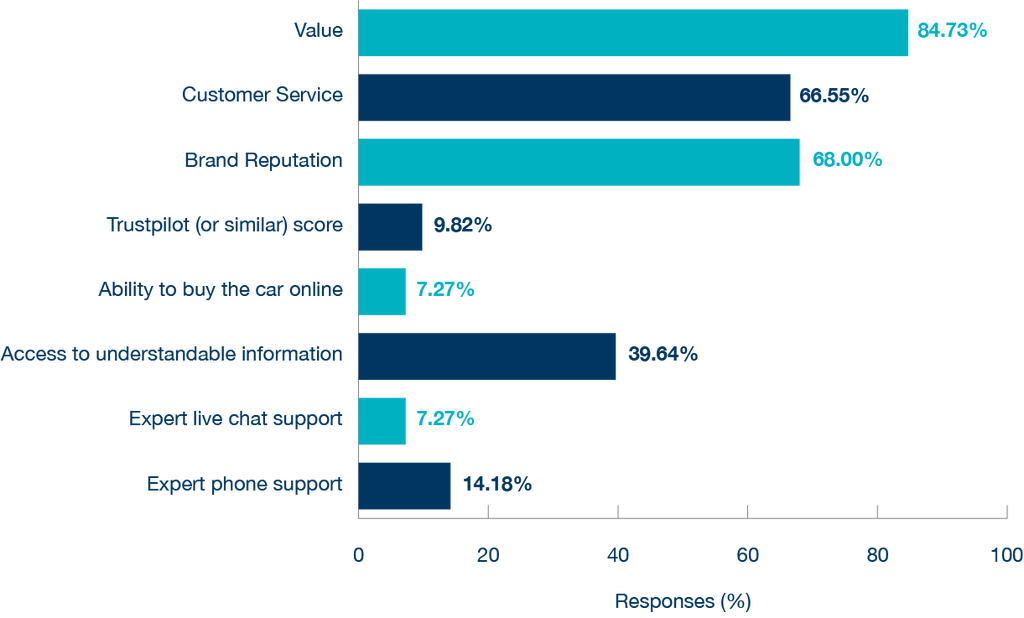
Chris Green
CEO AND FOUNDER

3 min read

One of the biggest discussion topics in our industry over the past few years has been the agency model: Will it work? Is it fair on dealers? And how will it impact financial performance?
But for all the talk of change, and there’s been plenty of it, car-buyer opinion about how they want to engage with brands and dealers has played second fiddle to how OEMs and dealers want to engage with each other.
The average car buyer won’t know the difference between the agency model and a traditional dealership and sceptics might say the consumer really doesn’t care, so long as they get a good deal on their new car. But our data shows that would be wide of the mark.
In our latest consumer survey, we asked our digital garage holders how they see car buying in 2024 and the overarching message is clear: put quality customer service first.
Which of these things are important when buying a new car?

Far be it from me to light the touchpaper and offer an opinion on which model is best at delivering exceptional customer service, but our data shows car buyers want to engage with dealers in the traditional sense.
66% want the option to haggle with their dealer to try and force a better price whereas 67% want to be giving their data and business to the dealer, as opposed to the manufacturer.
When we take a deeper dive and ask for feedback on why they’d prefer to give their business to the dealer, not the manufacturer, the majority of respondents say the same thing: He/she believes better after-sales support will be provided by a local business and not one tied more closely to the OEM.
The need for great customer care is proven elsewhere, too. In what will be a surprising stat to some, almost 7 in 10 (68%) of our users said they would rather spend more on a car as long as it came with great customer service as opposed to getting a great deal on a car that included poor customer service.
It’s easy to forget that quality customer service doesn’t need to be delivered in a face-to-face manner. The drive to give more online options to car buyers who want to reduce physical customer touchpoints should still be prioritised.
After all, 46% of our users believe it’s important that everything, from finding a car to arranging delivery, should be done online, from the comfort of your own home.

In simpler times, the drive by some to push online sales might have been made easier if it wasn’t for a confusing market landscape.
For example, a substantial information gap exists between those interested in electric cars and those with the confidence to buy one, with 4 in 10 saying they don’t know enough to make a purchase decision.
That knowledge gap could be partially closed by better online platforms that give the car buyer the information they want (i.e. battery health), but ultimately, we’re some time away from the masses wanting to make every action that’s related to buying a non-ICE car an online one.
And so, as the market evolves with ongoing uncertainty about fuel types and confusing government policy only acting as a deterrent to car buying generally, the value of customer retention is higher than ever and brands and dealers that live by the traditional values of great customer care will have the best chance of securing it.
How that customer care is delivered will be a debate that rumbles on throughout 2024 so it will be hugely important to get right. That’s partly because of the sheer volume of resources challenger Chinese brands are bringing to UK shores, but it’s also because manufacturer brand loyalty, according to our data, is at its lowest in the modern era.






